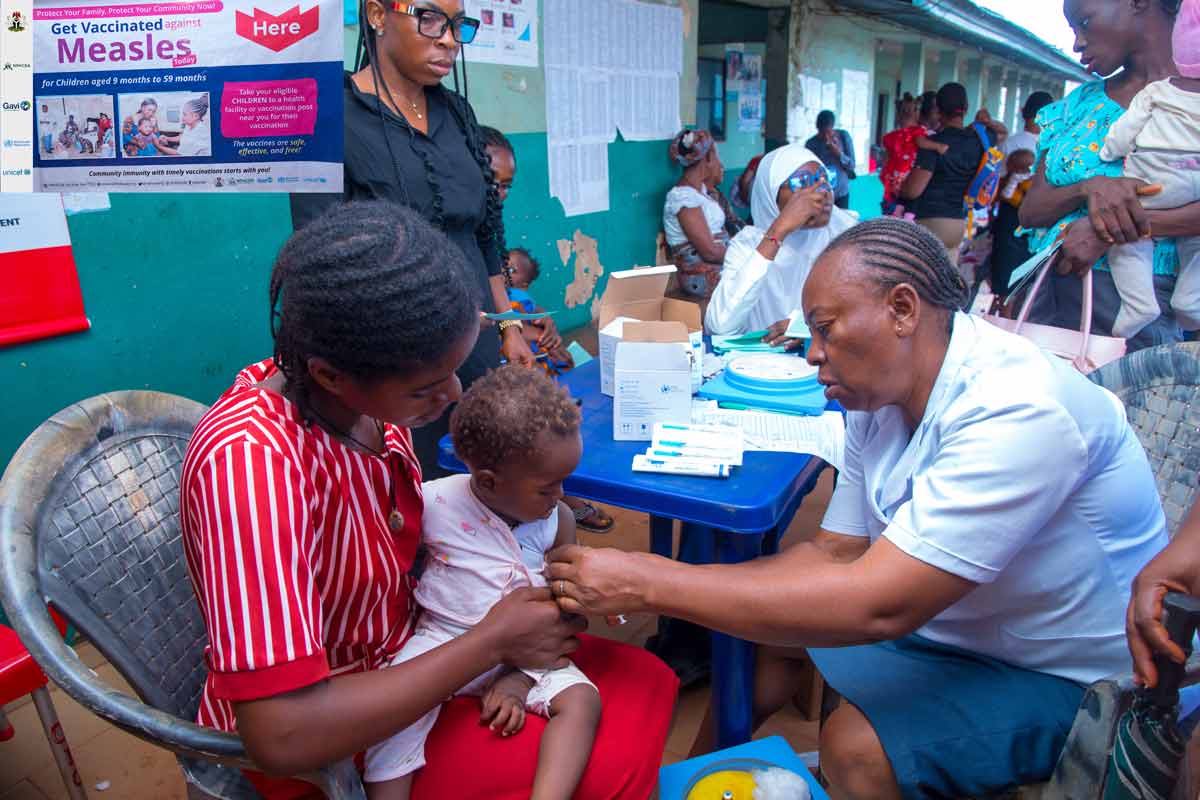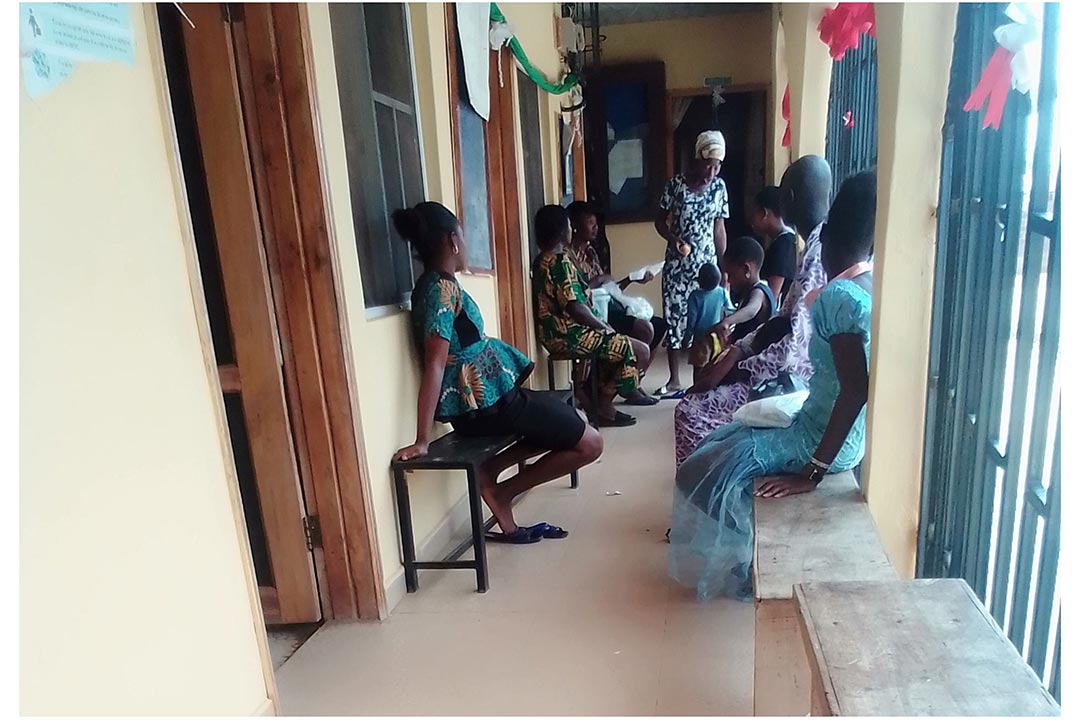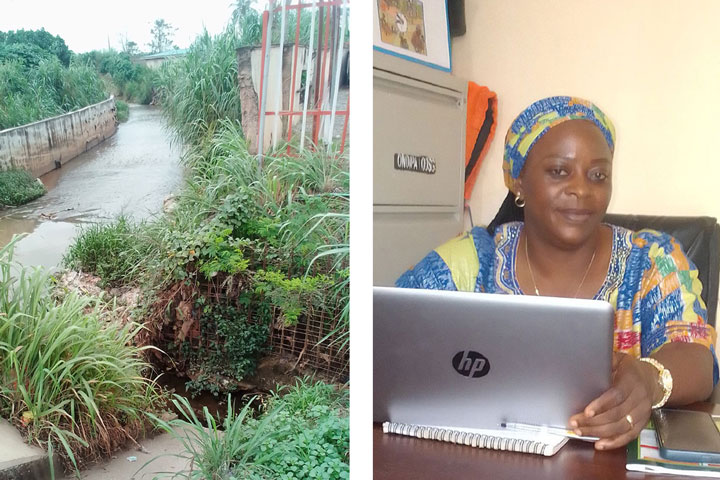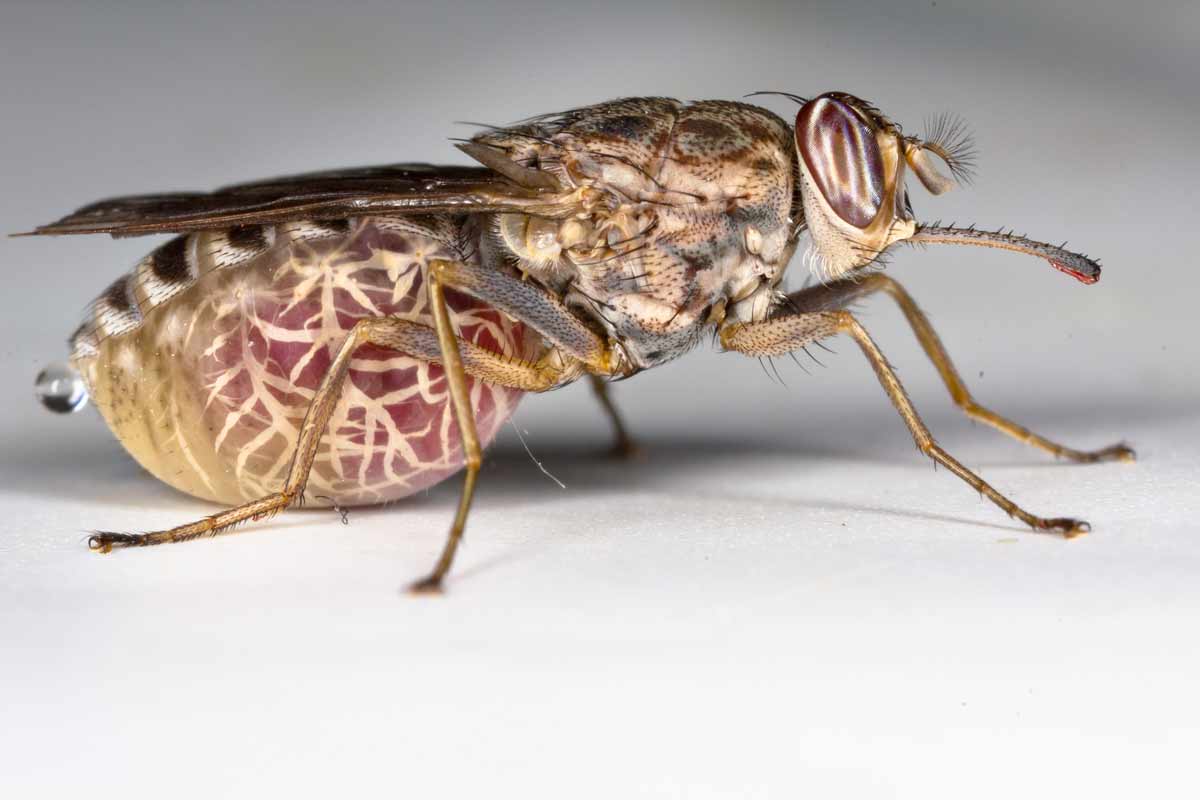24 million Nigerian kids to be vaccinated against measles in major campaign
Amid a rash of outbreaks – a sure sign of thinned immunity – hard-hit states are rushing to patch the gaps.
- 7 November 2024
- 5 min read
- by Adetokunbo Abiola , Gavi Staff , UNICEF

Fortunate Okoro’s son was nearly two years old when he received his first shot of the measles vaccine last month – more than a year past schedule, but fortunately not too late to be included in the massive measles catch-up campaign that kicked off in Nigeria on 5 October.
The campaign is underway in 12 states and will encompass 24 states by year’s end, aiming to give almost 24 million children between the ages of 9 and 59 months access to the vaccine. National health officials say the initiative is designed to respond decisively to a year of uncommonly prolific outbreaks, indicative of dangerous gaps in immunisation coverage.
Sounding the alarm
In just the first half of this year, 297 outbreaks of measles were reported in Nigeria. Those outbreaks produced some 16,000 suspected cases, with 8,000 of those cases lab-confirmed. At least 70 people had died of measles by the start of July.
That qualifies as a sharp spike – even set against a wider trend of elevated measles transmission in recent years, with 15,099 suspected cases recorded for the entirety of 2020 and 10,000 in 2021.
As of 2023, Nigeria’s coverage rates for the first dose of measles-containing vaccine stand at 60%, with the second dose coming in at just 38%.
The equivalent global rates hover at 83% and 74% respectively – still lagging the recommended ‘safe’ threshold of 95%, at which populations are considered to have achieved herd immunity from the extremely contagious virus.
The states Borno, Yobe, Katsina, Adamawa and Osun accounted for 51.55% of suspected cases to July this year, according to the Nigeria Centre for Disease Control (NCDC), but measles was more widespread across the country than this figure makes it seem. Over 60% of Nigeria’s 774 local government areas (LGAs) suffered measles outbreaks in the first half of the year.
“Complications developed after my son caught measles in 2021. He developed respiratory problems that the doctors linked to measles. I went through hell during that period. I now have a nine-month-old baby. Someone told me I could immunise her against measles at the hospital. I took her there to avoid problems.”
- Dupe Badejo, mother
International fightback
Nigeria is not alone. Globally, measles immunisation rates still stand two%age points below pre-pandemic levels, and that widened gap in protection has been felt around the world. According to annual measles figures published by the World Health Organization (WHO) and US Centers for Disease Control and Prevention (CDC), 51 countries experienced “large and disruptive” measles outbreaks between December 2022 and November 2023 – up from 33 countries in the year before that.
But if the extremely contagious, but eminently preventable, measles virus has won an expanded territory in recent years, that territory hasn’t been equitably distributed. Over half of the countries hit by major outbreaks last year were on the African continent.
International health organisations are helping vulnerable health systems to shore up their safety net. Nigeria is one of more than 20 countries worldwide that Gavi is helping to conduct large-scale measles catch-up campaigns this year, in a push expected to reach more than 100 million children with life-saving vaccines.

Early outbreak in Maiduguri
Nigeria’s first measles outbreak of the year happened in Maiduguri, Borno State – a spillover from last year. A nine-year-old girl, Fatimah Umar, fell victim to the virus in late January.
Scared, her father rushed her to the hospital on 1 February after her illness worsened, with high fever and sensitivity to light. Luckily for her, Fatimah overcame the illness after a week of treatment.
Measles found another victim in Zaynab Abu, a six-year-old girl from Yerwa district in Maiduguri. Her mother rushed her to the hospital on 2 February, with high fever and other symptoms. Doctors diagnosed her with measles and promptly admitted her, saving her from death.
Measles is one of the most contagious human viruses known to science: it moves fast. In the final three months of 2023, Médecins Sans Frontières (MSF) say they admitted almost 10,000 patients diagnosed with measles to clinics in Maiduguri.
“States need to be serious about achieving 95% vaccination rates. The inability to achieve this exacerbates measles disease,” Dr Tochukwu Jombo Okolie of MSF told VaccinesWork.
Hitting vaccination targets in Ondo
Other state governments also shored up primary health care activities in the wake of the Borno and Adamawa measles outbreaks.
From 15 October, in Ondo State, the state government carried out a campaign to vaccinate 925,111 children throughout the 293 wards of the state with the support of UNICEF, Gavi, WHO a nd other partners.
“We had a goal for the exercise, and we achieved it. We achieved the goal of 95% vaccination coverage for measles, 80% for yellow fever, and over 85% for zero-dose children in underserved local government areas,” Comfort Olagundoye, Ondo State Immunisation Officer, told VaccinesWork.
The news about measles vaccination reached 40-year-old Yetunde Adesewa at the Oja Oba market in Akure, Ondo State. The fear of her daughter contracting the deadly virus prompted her to bring the baby to the hospital, where doctors administered a dose of the measles-rubella (MR) vaccine.
“I had a daughter who suffered from measles complications in 2020. Adebisi developed all sorts of problems. I spent a lot of money to cope with her. When I heard about the measles vaccination in Akure, I took my ten-month-old daughter for it – when I learned it would be free,” Yetunde told VaccinesWork.
Dupe Badejo told a similar story. “Complications developed after my son caught measles in 2021. He developed respiratory problems that the doctors linked to measles. I went through hell during that period. I now have a nine-month-old baby. Someone told me I could immunise her against measles at the hospital. I took her there to avoid problems,” she told VaccinesWork.








